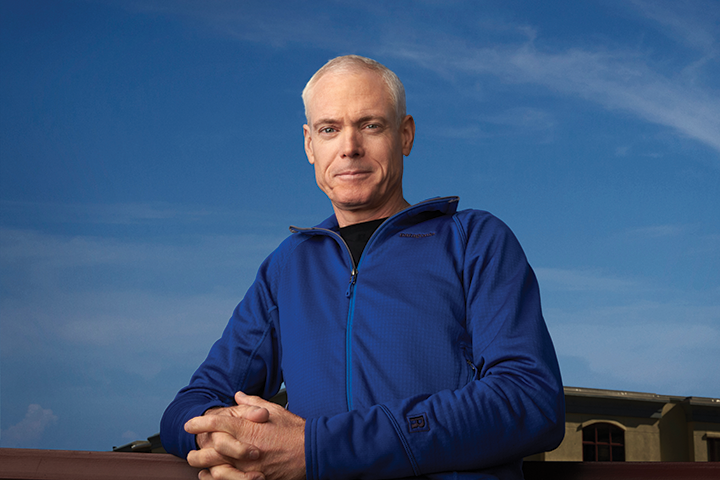Unpacking the Enduring Lessons of Good to Great

By Bridget McCrea
Contributing Writer
When Jim Collins penned his best-known book, Good to Great: Why Some Companies Make the Leap… and Others Don’t, in 2001, he set out to answer a fundamental question that vexes every business executive and entrepreneur: How exactly do good companies become great companies? After five years of research into the performance of 1,435 companies over four decades, Collins found answers in 11 organizations that distinguished themselves through durable patterns of behavior and strategic choices.
Twenty-four years and 4 million copies later, Good to Great remains one of the most influential business management books of this millennium. The principles Collins outlines, such as Level 5 Leadership (humble yet fiercely determined leaders), and the Hedgehog Concept (understanding what your organization can be the best at), are universal across industries, and its lessons have endured through two decades of economic shifts. It’s no surprise that FEDA members frequently cite Good to Great as one of their favorite texts, which is why the association is so thrilled to welcome Collins as the keynote speaker for the 2025 FEDA Annual Executive Leadership Conference.
At the conference, Collins will deliver a 90-minute presentation covering what it takes to build a successful and enduring enterprise. He’ll share insights from decades of research into business organizations, including his findings in Built to Last, which investigates why some companies are able to become and remain visionary through multiple generations of leaders, and his latest book, BE (Beyond Entrepreneurship) 2.0, which provides practical guidance for becoming a great leader and achieving consistent tactical excellence. Following his presentation, he’ll lead a one-hour master class workshop where attendees can practice putting those concepts into action.
In Search of Timeless Principles
A college math major who graduated with a master’s degree in business administration, Collins turned his relentless curiosity into a research and teaching career at Stanford University. After finding early success, having received the school’s Distinguished Teaching Award in 1992, he soon began to refine his iterative research process, which repeatedly tests ideas against data until a framework of concepts forms. This research method has served as the foundation for Collins’ seven acclaimed business management books and earned him a spot on Forbes’ 2017 list of the 100 Greatest Living Business Minds. The concepts Collins identified also gave him the opportunity to found a management lab where he conducts research and engages with CEOs and senior leadership teams.
In addition to his work with businesses, Collins has a passion for learning and teaching in social sectors, including education, health care, government, faith-based organizations, social ventures, and cause-driven nonprofits. This has led him to serve in roles outside the business world, such as a two-year appointment as the Class of 1951 chair for the study of leadership at the United States Military Academy at West Point.
Understanding What Makes Some Companies Great
Collins will touch on his experiences and what business executives can learn from his research during his presentation at the FEDA conference, which will be part of the general session on Sept. 12. The session, titled From Good to Great Leaders, will focus on the secrets to great companies’ success, why certain organizations make the leap to “great” and how some businesses are able to remain visionary across several decades — a topic that may be especially interesting to FEDA members given the significant number of distributors on their third or fourth generation of family leadership.
“I’m very much looking forward to coming and spending time with FEDA members at the upcoming gathering in September,” Collins said in a video message he recorded for FEDA members. “I’ll be bringing 30 years of research into the question of what makes great companies tick, and I’ll be sharing some of the related, key ideas with FEDA.”
People who engage in disciplined thought and take disciplined action ask themselves thought-provoking questions, Collins said. At the conference, he’ll ask FEDA members to apply some of those questions to their own companies, such as:
- What can we truly be the best in the world at?
- What can we do that we’re truly passionate about and that drives our economic engine?
- How can we translate that all into a series of disciplined decisions that allow us to build momentum with a great flywheel effect that compounds over a long period of time?
“All these ideas will fit into the session, and attendees will have a chance to think about them and to engage with each other about them,” Collins said. “I look forward to seeing everyone there and spending some time with the distributors and suppliers who attend this year’s event.”
Building Truly Great Companies
A self-described Socratic advisor to leaders in the business and social sectors, Collins offers more than just academic theory. His website, jimcollins.com, lists a plethora of freely available digital resources, including THE MAP and the Good to Great Diagnostic Tool, the latter of which is an excellent preparation guide for anyone attending Collins’ keynote sessions.
The origins of THE MAP trace back to when Collins started his research and teaching career at Stanford. While developing a new syllabus for a class on entrepreneurship and small-business management, he typed out a course overview that challenged students with a lofty aspiration. “Instead of focusing solely on the fundamentals of launching a start-up venture and managing a small to mid-sized business, I reframed the entire course around the question of what it would take to build an enduring great company,” Collins writes in BE 2.0. “I fell in love with the question.”
Those early musings would serve as the foundation for THE MAP, a series of 12 questions that promote and support disciplined thought. Each question corresponds to one of the 12 input principles in THE MAP.
The Good to Great Diagnostic Tool, meanwhile, helps organizations assess where they stand in their journey to becoming great companies. Structured around the framework outlined in its namesake book, the tool outlines key principles identified through research on companies that made the leap to sustained greatness.
Distributors can use this tool to evaluate their practices and performance against these principles, covering areas such as leadership, people management, strategy, culture, and long-term vision. By honestly assessing their strengths and weaknesses in each area, organizations can pinpoint where they need to improve and develop a roadmap for implementing strategies for lasting success.
Get Ready to Go Great
As executives in the foodservice equipment and supplies industry listen to Collins’ presentation at the FEDA conference, they’ll be challenged to become introspective about the very essence of their organizations and their own leadership styles. For Collins, that sincere assessment is a necessary first step toward creating an organization that can excel in today’s market.
While transforming from good to great is an accomplishment in and of itself, it’s important to keep in mind the lessons of Collins’ other books. As he notes in How the Mighty Fall, even great institutions are vulnerable to decline. At the FEDA conference, Collins will help attendees understand how companies can avoid the self-inflicted mistakes that often cause them to wane. As he’s discovered through his decades of research, the journey from good to great is a continuous climb, and the organizations that endure at the top are those that make a commitment to inspiring and contributing beyond the bottom line.
